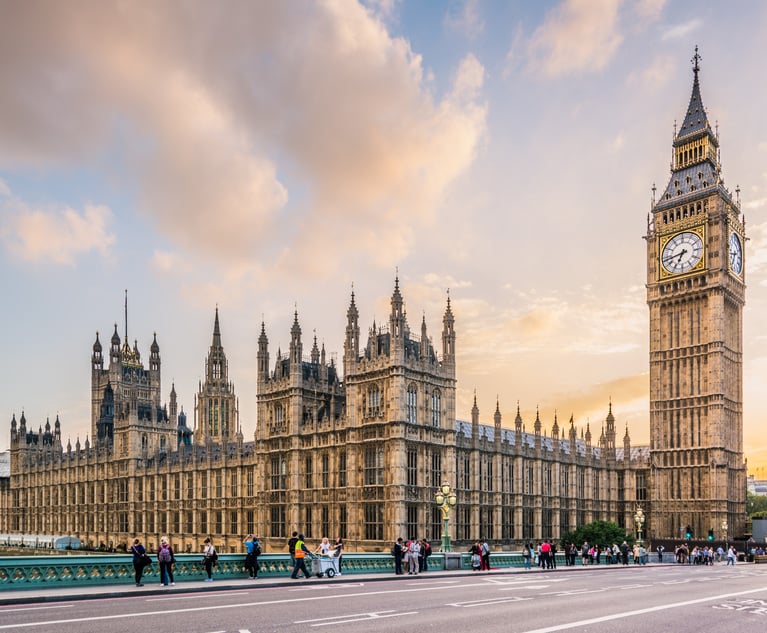Bribery
The Serious Fraud Office (SFO) has updated its policies on facilitation payments, business expenditure (hospitality) and corporate self-reporting, following…
October 11, 2012 at 07:42 AM
2 minute read
The Serious Fraud Office (SFO) has updated its policies on facilitation payments, business expenditure (hospitality) and corporate self-reporting, following a review headed by the body's recently appointed director, David Green QC.
In a statement on its website, the SFO said the review would help restate its role as an investigator and prosecutor of serious or complex fraud and ensure consistency with other prosecuting bodies.
How the SFO determines the prosecution of facilitation payments, business expenditure and corporate self-reporting will be governed by the "Joint Prosecution Guidance of the Director of the SFO and the Director of Public Prosecutions on the Bribery Act 2010″.
Green, one-time director of the Revenue and Customs Prosecutions Office, replaced former director Richard Alderman in April. Since then, he has signalled the SFO would adopt a tougher approach when dealing with high-profile fraud and corruption.
"This is a message to the corporate world that the SFO is first and foremost a prosecutor", said Hogan Lovells litigation partner Jeremy Cole. "They are clearly toughening their stance towards enforcement. The sense is that there will be less flexibility for corporates to engage with the SFO – there will be no half way house. Corporates will now need to rethink their approach on self-reporting."
Pinsent Masons partner Barry Vitou drew particularly attention to the changes made to self-reporting: "The old SFO preference for settling corporate self-reports civilly has been dropped and businesses may now perceive a much greater risk of a criminal prosecution even if they self-report. That said, the future of the SFO is reliant on self-reporting and so the tough line needs to be seen in context."
"On facilitation payments, the old guidance appeared to accept that business practices wouldn't change overnight, which implied the SFO would take a light touch approach to minor infractions. It looks like the honeymoon period is over. The new guidance is much more black and white."
Vitou also said businesses should not be nervous about legitimate corporate hospitality, an area in which corporates have often sought advice in the year since the Bribery Act 2010 came into effect.
This content has been archived. It is available through our partners, LexisNexis® and Bloomberg Law.
To view this content, please continue to their sites.
Not a Lexis Subscriber?
Subscribe Now
Not a Bloomberg Law Subscriber?
Subscribe Now
NOT FOR REPRINT
© 2025 ALM Global, LLC, All Rights Reserved. Request academic re-use from www.copyright.com. All other uses, submit a request to [email protected]. For more information visit Asset & Logo Licensing.
You Might Like
View All
Malaysia’s Shearn Delamore Set To Expand Local Footprint With New Office Launch


CMA Uses New Competition Powers to Investigate Google Over Search Advertising

‘A Slave Drivers' Contract’: Evri Legal Director Grilled by MPs
Trending Stories
- 1'Every Single Judge on Board': First-Impression Case Revived
- 2NYSBA Annual Meeting: How In-house Counsel Navigate Gen AI Risk
- 3A Judge Ordered Squabbling Lawyers to Have Lunch: Here's What Happened
- 4'Nerve-Wracking': Fires Disrupting but Not Halting Work of Distributed Firms' LA Lawyers
- 53rd Circ Orders SEC to Explain ‘How and When the Federal Securities Laws Apply to Digital Assets’
Who Got The Work
J. Brugh Lower of Gibbons has entered an appearance for industrial equipment supplier Devco Corporation in a pending trademark infringement lawsuit. The suit, accusing the defendant of selling knock-off Graco products, was filed Dec. 18 in New Jersey District Court by Rivkin Radler on behalf of Graco Inc. and Graco Minnesota. The case, assigned to U.S. District Judge Zahid N. Quraishi, is 3:24-cv-11294, Graco Inc. et al v. Devco Corporation.
Who Got The Work
Rebecca Maller-Stein and Kent A. Yalowitz of Arnold & Porter Kaye Scholer have entered their appearances for Hanaco Venture Capital and its executives, Lior Prosor and David Frankel, in a pending securities lawsuit. The action, filed on Dec. 24 in New York Southern District Court by Zell, Aron & Co. on behalf of Goldeneye Advisors, accuses the defendants of negligently and fraudulently managing the plaintiff's $1 million investment. The case, assigned to U.S. District Judge Vernon S. Broderick, is 1:24-cv-09918, Goldeneye Advisors, LLC v. Hanaco Venture Capital, Ltd. et al.
Who Got The Work
Attorneys from A&O Shearman has stepped in as defense counsel for Toronto-Dominion Bank and other defendants in a pending securities class action. The suit, filed Dec. 11 in New York Southern District Court by Bleichmar Fonti & Auld, accuses the defendants of concealing the bank's 'pervasive' deficiencies in regards to its compliance with the Bank Secrecy Act and the quality of its anti-money laundering controls. The case, assigned to U.S. District Judge Arun Subramanian, is 1:24-cv-09445, Gonzalez v. The Toronto-Dominion Bank et al.
Who Got The Work
Crown Castle International, a Pennsylvania company providing shared communications infrastructure, has turned to Luke D. Wolf of Gordon Rees Scully Mansukhani to fend off a pending breach-of-contract lawsuit. The court action, filed Nov. 25 in Michigan Eastern District Court by Hooper Hathaway PC on behalf of The Town Residences LLC, accuses Crown Castle of failing to transfer approximately $30,000 in utility payments from T-Mobile in breach of a roof-top lease and assignment agreement. The case, assigned to U.S. District Judge Susan K. Declercq, is 2:24-cv-13131, The Town Residences LLC v. T-Mobile US, Inc. et al.
Who Got The Work
Wilfred P. Coronato and Daniel M. Schwartz of McCarter & English have stepped in as defense counsel to Electrolux Home Products Inc. in a pending product liability lawsuit. The court action, filed Nov. 26 in New York Eastern District Court by Poulos Lopiccolo PC and Nagel Rice LLP on behalf of David Stern, alleges that the defendant's refrigerators’ drawers and shelving repeatedly break and fall apart within months after purchase. The case, assigned to U.S. District Judge Joan M. Azrack, is 2:24-cv-08204, Stern v. Electrolux Home Products, Inc.
Featured Firms
Law Offices of Gary Martin Hays & Associates, P.C.
(470) 294-1674
Law Offices of Mark E. Salomone
(857) 444-6468
Smith & Hassler
(713) 739-1250








